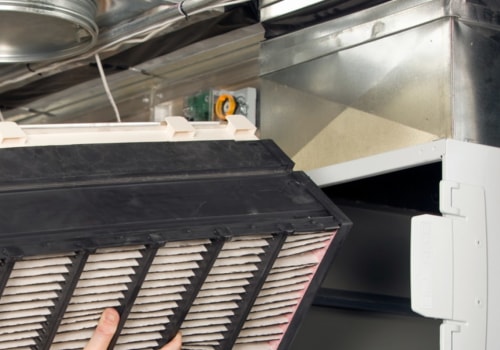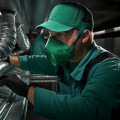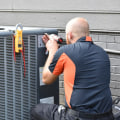If you're wondering how many air purifiers you need for your home, the answer depends on the size of your living space. Generally, you need about 100 CFM (cubic feet per minute) of air purification for every 250 square feet of room space. So, if you have a 1,400 square foot home, you'll need two air purifiers to ensure proper air purification. However, if your home is smaller and consists of a living room with a 12×12 bedroom, a 15×10 kitchen, and a 14×14 living room, then a single air purifier might suffice.
You can even move it from room to room to increase indoor clean air circulation. To get the square footage of your room, measure the length and width of your room in feet and multiply the two numbers. Can a single purifier clean an entire apartment, even if the bedroom door is closed? The Smart Air team put it to the test using an entire apartment in Beijing. For spaces up to 700 square feet, they used a true HEPA filter (medical grade H13), making it ideal for homes with people who have allergies and asthma.
With four fan speeds, it meets CARB standards and is Energy Star certified. You even have different filter options (pure, fresh and smoked) depending on your needs. It's important to understand the difference between air purifiers and humidifiers so you can get the right unit for your home. Although the room with the door open received more clean air from the air purifier, this room was dirtier at the beginning of the test.
This air cleaning process allows the PCO air purifier to not only cover much more space than a HEPA air purifier, but also to work in all rooms when the doors are left open. You'll also need several PCO air purifiers in your home if you prefer to keep your bedroom doors closed. One circumstance where you may not need an air purifier in every room is when you live in a large house alone or with another person. It is not advisable to leave an ozone generator running 24 hours a day in your home such as a HEPA or PCO air purifier.
Filtered air volume is measured in cubic feet per minute (cfm) with three separate tests for dust, pollen and smoke. But did you know that the air quality inside your home may not be healthier than outdoor air? Fortunately, an air cleaner with the right room size can literally help clear the air. No, since most air purifiers have a low energy consumption rate identical to that of other smaller appliances. In other words, the CADR rating is a measurement figure that is the volume of filtered air supplied by an air cleaner. Its air purification process leaves behind fine dust films on walls and surfaces formed by particles that are neutralized from the air.
She's enthusiastic about maintaining good air quality at home and on the go, and shares her knowledge here at Fresh Air Genie. For households with pets or smokers, perform a maximum of five air changes per hour to significantly reduce the amount of allergens. Smart Air is a certified B company that is committed to fighting the myths that large companies use to artificially inflate the price of clean air. Now, PCO air purifiers won't penetrate through closed walls or doors, but if you don't mind leaving your home doors open most of the time, you can get one PCO air purifier for every three rooms.







